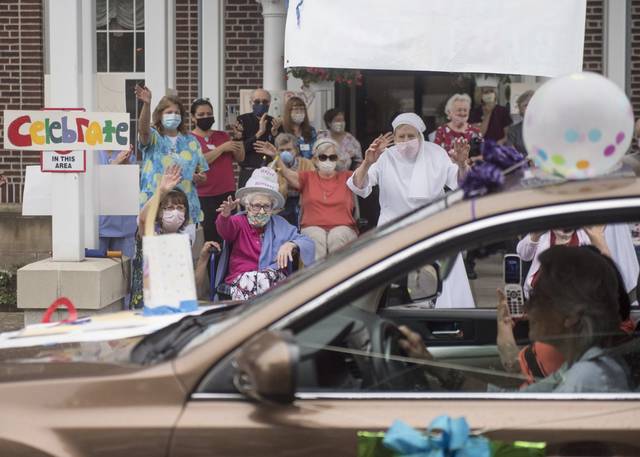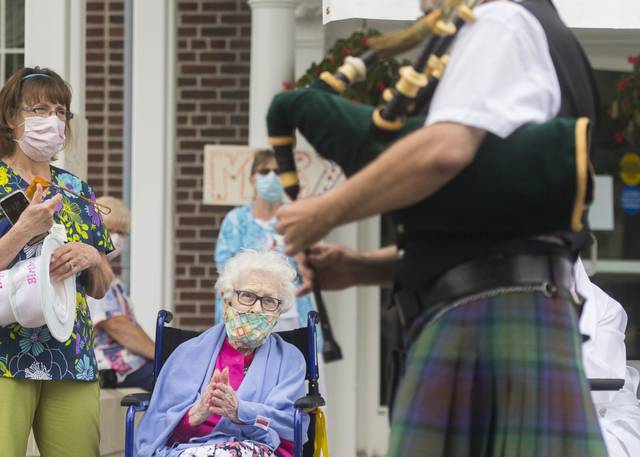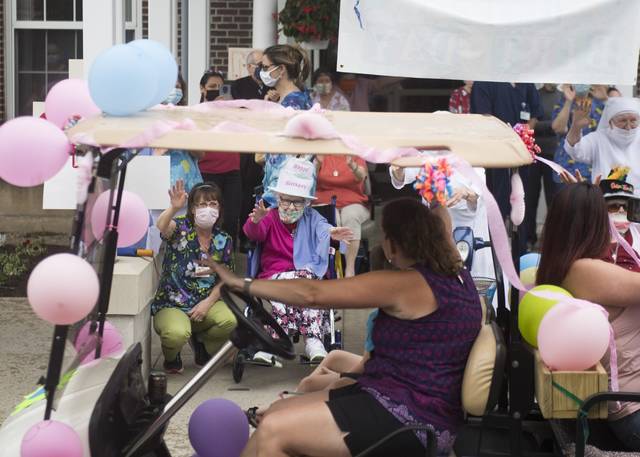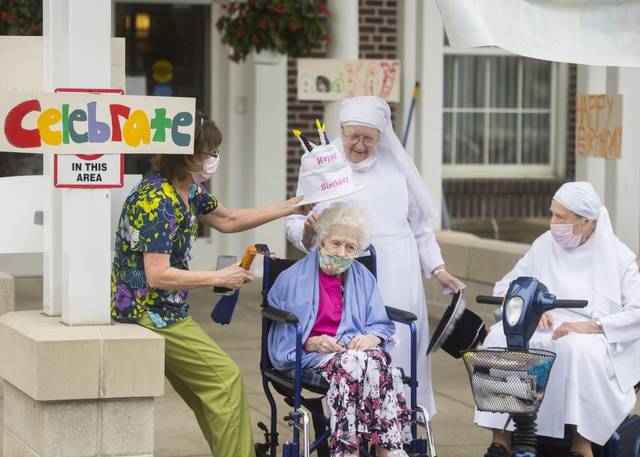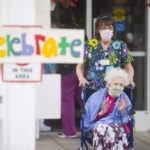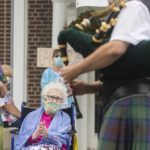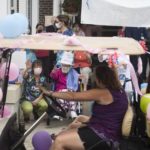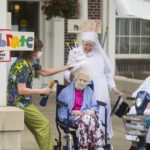There were days when Kay Canyock must have wondered if she would live to be 30, let alone 100.
Canyock, who was born on June 17, 1920 in Bristol, England, celebrated her centennial birthday at the Little Sisters of the Poor Home in Brighton Heights where she resides.
On Wednesday she took part in a parade in her honor just outside the home that included Scottish bagpipes and a police motorcycle escort. She was also feted with flowers.
“I’ve been given flowers and more flowers and beautiful bouquets,” said Canyock in her distinctive British accent during a telephone interview. “They just brought in another bouquet. I love flowers.”
World Wars I and II had a significant impact on her life.
Her mother delivered Kay at home. They were no doctors available to deliver newborns because they were tending to wounded soldiers from World War I, which had ended just 18 months earlier.
World War II brought a great deal of death and destruction to England, particularly to the city of Bath, where Kay was stationed during the war. The term “Bath Blitz” refers to the numerous 1942 air raids in which the German Luftwaffe targeted the city.
Kay had various jobs in what was called the Women’s Land Army, created during wartime to place women with farms that needed workers. She recalls the green jumpsuit she wore while harvesting potatoes, among other things.
Kay ended up severely injuring her head, neck and lower spine after taking a fall. Born Kay Searle, she ended up meeting a hospitalized American soldier from Pittsburgh named Joseph Canyok, who was a motorcycle escort to General George Patton.
“He was one of General Patton’s bodyguards, and he took a bullet in his hip,” said Kay. “He was wounded in France and had to recuperate in England. And I was wounded, too, so that’s how I met him.”
They were introduced at a Tea Dance. They fell in love, got engaged and married at St. Michaels and All Angels, part of the Church of England.
“My family said, ‘You’ll get married here before you go away.’ They tried to make a wedding cake, but they were unsuccessful because of the (wartime) rationing,” she recalled.
Joseph returned to the United States but Kay had to wait three years to get a visa to join him in Pittsburgh.
“I didn’t come to America on a nice ship,” Canyock said. “I came on a tanker, and it was horrible. It took nine days to cross the ocean.”
When she finally made it to Pittsburgh, Kay said she didn’t recognize her husband at first.
“Then he saw me and he wrapped me up in his arms and took me home.”
They stayed in Pittsburgh and had three daughters, three grandchildren, seven great-grandchildren and one great-great-grandchild. And while Canyock loved her family, she said it took a while for her to get used to her new country.
“I didn’t like America at all,” she said. “I didn’t know what ‘okay’ meant. I was used to hearing people say ‘all right.’ And I didn’t understand when people said, ‘Hi, there’ and ‘Gimme that’ without saying ‘please.’”
But Canyock seems very much at home these days. Every afternoon around 4 p.m., she can be found having a proper English tea time.
“I even have an English tea pot.”
She loves crisp bacon, plays bingo and remains physically active, exercising three times a week on an omnicycle while supervised by a physical therapist.
Canyock still has a younger sister, who is 96 years old, and lives in France after marrying a French paratrooper during the war. They speak on the phone every Sunday morning at 11:30.
“We have a long chat about the good times, the bad times, the memories and all of that. And then she says ‘I’ll call you again at 11:30 next Sunday morning.’”



